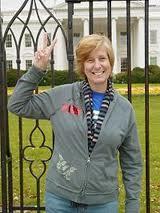David Swanson's Blog, page 155
January 23, 2013
Talk Nation Radio: Reese Erlich on Bahrain and Syria
Bahrain and Syria: in one the United States supports a brutal dictatorship against a nonviolent movement for human rights. In the other the United States supports violent opposition to the government in the name of human rights. All is not as it appears. We speak with Reese Erlich.
Reese Erlich's history in journalism goes back 45 years. He first worked as a staff writer and research editor for Ramparts, an investigative reporting magazine published in San Francisco from 1963 to 1975. Today he works as a full-time print and broadcast, freelance reporter. He reports regularly for National Public Radio, CBC, ABC (Australia), Radio Deutsche Welle and Market Place Radio. His articles appear in the Global Post and Christian Science Monitor. His television documentaries have aired on PBS stations nationwide.
Erlich’s book, Target Iraq: What the News Media Didn't Tell You, co-authored with Norman Solomon, became a best seller in 2003. The Iran Agenda: The Real Story of US Policy and the Middle East Crisis was published in 2007. Dateline Havana: The Real Story of US Policy and the Future of Cuba was published in 2009. Conversations with Terrorists: Middle East Leaders on Politics, Violence and Empire, was published in 2010.
Total run time: 29:00
Host: David Swanson.
Producer: David Swanson.
Music by Duke Ellington.
Download or get embed code from Archive or AudioPort or LetsTryDemocracy.
Syndicated by Pacifica Network.
Please encourage your local radio stations to carry this program every week!
Embed on your own site with this code:
<object autostart="false" data="http://davidswanson.org/sites/davidsw..." height="100px" width="400px"></object>
Past Talk Nation Radio shows are all available free and complete at http://davidswanson.org/talknationradio
January 22, 2013
January 21, 2013
How Unalienable Is Life?
Meet the new boss who, upon his inauguration, declared that the right to life is unalienable. Let me be clear, that doesn't mean he can't take yours.
In fact, he runs through a list of men, women, and children on Tuesdays, hung over from inaugurations or not, and picks whom to murder and murders them.
January 19, 2013
The African-American Army
Escaped slaves fought on the British side, which promised to free them, during the American war for independence for white men. But nobody liked to talk about that much after the French won the war, although -- come to think of it -- nobody much likes to talk about the French winning the war, or for that matter about the big losers being, not the British but the Native Americans.
January 17, 2013
Nixon Went to China, Who Will Go to Iran?
Iranians are now beginning to die for lack of medicines kept out by U.S.-imposed sanctions. I recently questioned (and videoed) former U.S.
January 16, 2013
Why We Need a Mossadegh Legacy Institute
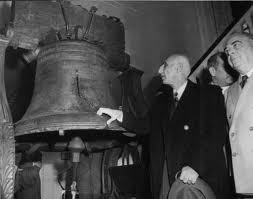
A Mossadegh Legacy Institute has been created. If you're not sure what that means, read a few of the endorsements:
In full agreement with Cindy Sheehan, especially where she emphasizes the American nature of this responsibility, of this moral wound [see below], I am very glad to learn about what you are doing, and pleased to endorse the mission of the Mossadegh Legacy Institute.
I really wish I could do more, but demands are so intense, it’s just impossible I am afraid.
Prof. Noam Chomsky
http://chomsky.info/index.htm
Honorary Chair of the Board of Endorsers, Mossadegh Legacy Institute (MLI)
The mission of this historic initiative should be (and indeed is) primarily an AMERICAN moral responsibility.
Why? Because the temporarily successful violent overthrow of the non-violent "George Washington of Iran" was the mother of almost all profoundly destructive subsequent errors of state judgement in the recent history of this country, at least since the deeply misguided CIA coup of August 19, 1953. Had the U.S. government not overthrown Iran's young democratic government 60 years ago, history would have unfolded quite differently, and many of today's conflicts would have been avoided.
So I firmly believe, that "We the People" should view the Mossadegh Legacy Institute (MLI) as a truly patriotic opportunity to help rehabilitate the collective conscience of our own nation. In other words, this is a neglected AMERICAN moral wound in need of authentic examination and healing, not just an Iranian, Middle Eastern, or "global South" festering wound.
Cindy Sheehan
www.cindysheehanssoapbox.com
Member of the Board of Endorsers, Mossadegh Legacy Institute (MLI)
*******
*******
As a U.S. citizen with a keen interest in history, I believe that Americans should be aware of Mohammad Mossadegh (1882-1967), the former Prime Minister of Iran, who attempted to nationalize the Iranian oil industry--which had previously been 80% "owned" by the company we know now as the BP, and 20% owned by Iran.
In 1953 the government of Great Britain obtained the use of the American CIA to overthrow Mossadegh's democratic government. As a result, the Shah of Iran was returned to power, and ruled with a dictatorial iron fist, until he (in turn) was overthrown in 1979, by the Islamic Revolution of Iran, led by Ayatollah Khomeini.
Mohammad Mossadegh was a brilliant, well educated leader who could have changed the course of history if his government had remained in power for a few more years. His life and legacy is a subject all people (especially Americans--who need to learn from history) should know about.
This is why I have joined this historic initiative.
Bruce Bridegroom
Film-maker, Historian, and Attorney at the Tucson, Arizona Law Offices of Bridegroom and Hayes -- http://www.orovalleyaz.gov/Assets/_as...
Co-Initiator of the MLI
*******
*******
The legacy of Mohammad Mossadegh, in particular his commitment to democracy, non-violence, and international law, serves a beacon and a moral example, not only for Iranian pro-democracy activists, but indeed for the entire world -- a unique legacy that should be studied carefully, remembered, and practiced. Thus, I am happy to endorse the work of the Mossadegh Legacy Institute.
Nader Hashemi
Director of Center for Middle East Studies; Assistant Professor of Middle East and
Islamic Politics, Josef Korbel School of International Studies, University of Denver
http://www.du.edu/korbel/docs/fac_has...
Member of the Board of Endorsers, Mossadegh Legacy Institute (MLI)
*******
*******
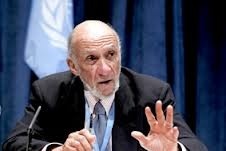
Dear Moji Agha:
I congratulate you [for starting] this initiative. In a small way the Mossadegh Legacy Institute (MLI) is a beginning of an American acknowledgement of the profound harm done to the people of Iran by initiating a chain of political events that started with the CIA engineered coup that restored the autocratic Shah to power and led to a revolutionary process hijacked by repressive theocrats, in the name of Islam.
I admire very much the legacy of Dr. Mossadegh, his passion for democracy, justice, and his dedication to the Iranian people and nation that led him to challenge the exploitative arrangement that allowed foreign oil companies to deprive the country of its resource wealth.
For these reasons I will be proud to be listed among the endorsers of MLI's mission statement--With my best wishes.
Prof. Richard A. Falk
The UN's Special Rapporteur on human rights in occupied Palestine
http://en.wikipedia.org/wiki/Richard_...
Member of the Board of Endorsers, Mossadegh Legacy Institute (MLI)
*******
*******
As Prime Minister of Iran, Mohammad Mossadegh's actions were motivated by a selfless dedication to improving the living conditions of the people his democratically elected government had the responsibility to serve. Accordingly, he courageously resisted the entreaties of special interest groups and foreign governments, whose immoral influence at the top echelons of government have always created havoc throughout the world, as is evident today when considering Israel's influence on American foreign policy.
So I think Dr. Mossadegh should be honored with a posthumous Nobel Peace Prize in recognition of his legacy, which demonstrates that freedom and democracy are possible anywhere in the world. Honoring the "Elder of Ahmad Abad" in this manner would also bestow dignity to the Nobel Prize Committee itself.
Richard Forer
Author: Breakthrough: Transforming Fear Into Compassion - A New Perspective on the Israel-Palestine Conflict
http://www.redress.cc/zionism/rforer2...
Member of the Board of Endorsers, Mossadegh Legacy Institute (MLI)
*******
*******
ENDORSEMENT OF THE MOSSADEGH LEGACY INSTITUTE (MLI)
Here is an organization with the right mission in the right moment, a mission encapsulated in its perfect choice of name.
Mohammad Mossadegh is remembered, when he is remembered, as a man who worked to better the lives of Iranians, who resisted foreign control of his nation and its natural resources, and who understood war to be the ultimate evil. Mossadegh's tools were oratory, organizing, and integrity. Not only did he choose not to use violence, but he was willing to give up power peacefully rather than allow a civil war to be waged in his name.
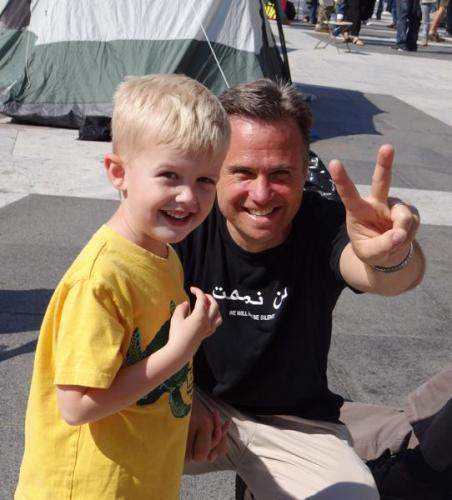
Westerners should find Mossadegh's legacy valuable for two reasons. First, his was an Iranian government more democratic and secular in nature than some others before and since. Second, what was done to his government is a critical historical lesson for those not well-informed on this shameful tragedy. When the CIA overthrew Mossadegh to install a U.S.-friendly dictatorship, it poisoned U.S.-Iranian relations from that day to this, and it developed a model for poisoning U.S. relations with many other nations, including Guatemala the very next year.
That Iranian people maintain any affection for the American people is a testament to the Iranians' wisdom and rationality. The U.S. public struggles to match Iranians in that regard. Understanding our shared and painful history is a necessary part of a process of reconciliation. Naming streets and landmarks in the United States for Mossadegh is a brilliant and creative idea, as is marking the 60th anniversary of the coup this summer at the Liberty Bell in Philadelphia, which Mossadegh had symbolically visited not long before the United States threw him out of power. I hope that work on developing student and cultural exchanges between Iran and the United States might also become part of this project.
I admire and appreciate Mossadegh who would obviously be a better Nobel Peace Prize recipient than the EU or Obama. While I'm pursuing, along with Fredrik Heffermehl and others, a strategy of trying to strictly enforce Alfred Nobel's will, in order to avoid the bestowing of Nobel Peace Prizes on either promoters of war or good humanitarians whose work is not for disarmament and demilitarization, I do believe that Mossadegh is long overdue for recognition. Statues, parks, streets, airports, halls, endowments, and peace rallies ought to be used to honor his legacy and to educate the world.
History is not apart from us. The United States has never dropped its effort to control Iran and to do so coercively. I am hopeful that Iran, as a leading nation among the non-aligned nations of our world, can actually lead the United States toward the better elements of its own legacy. There have been Americans over the decades who have been friends to Iran and have been honored for it. And there have been times when the United States has made movements in the direction of peace.
Having recently completed a study of the 1928 Kellogg Briand Pact, which bans war, and to which Iran and the United States and 80 some other nations are party, I would like to begin working to encourage Iran to ask the United States to state its intention of complying with the treaty. Iran could also encourage 100 some additional nations to join the treaty, which can be accomplished simply by notifying the U.S. State Department. All nations are accepted, by the terms of the treaty itself.
We should seek out such bright spots in our collective past and renew them. There was a time in 1951 when Mossadegh visited the United States and the United Nations, as well as the Liberty Bell. He was the Time magazine person of the year in 1952. Many respected him, although begrudgingly. Others truly liked and admired him. We cannot undo the crime of 1953, the overthrow engineered from the same U.S. embassy that Iranians would occupy to prevent its repetition in 1979. But we can focus on what the American and Iranian people have in common, which runs far deeper than the disagreements of governments.
And as Americans come to understand the Iranian people, we will be better able to face down a propaganda push for a war on Iran, not only because of our familiarity with the lies that launched the war on Iraq in 2003, not only because of our understanding of the lies that have framed official U.S. discussions of Iran since 1953, but also because the phrase "Iranian collateral damage" will mean to us people whom we know, love, and respect.
David Swanson
Author: WAR IS A LIE
http://davidswanson.org/about
Member of the Board of Endorsers, Mossadegh Legacy Institute (MLI)
Talk Nation Radio: Stephen Zunes on Kerry, Hagel, Brennan, and Obama Part II
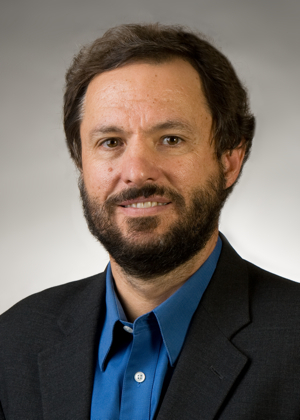 Stephen Zunes is a Professor of Politics and International Studies at the University of San Francisco, where he chairs the program in Middle Eastern Studies. Recognized as one the country’s leading scholars of U.S. Middle East policy and of strategic nonviolent action, Professor Zunes discusses the nominations of John Kerry, Chuck Hagel, and John Brennan, and the direction charted for the second term of Obama's presidency.
Stephen Zunes is a Professor of Politics and International Studies at the University of San Francisco, where he chairs the program in Middle Eastern Studies. Recognized as one the country’s leading scholars of U.S. Middle East policy and of strategic nonviolent action, Professor Zunes discusses the nominations of John Kerry, Chuck Hagel, and John Brennan, and the direction charted for the second term of Obama's presidency.
Total run time: 29:00
Host: David Swanson.
Producer: David Swanson.
Music by Duke Ellington.
Download or get embed code from Archive or AudioPort or LetsTryDemocracy.
Syndicated by Pacifica Network.
Please encourage your local radio stations to carry this program every week!
Embed on your own site with this code:
<object autostart="false" data="http://davidswanson.org/sites/davidsw..." height="100px" width="400px"></object>
Past Talk Nation Radio shows are all available free and complete at http://davidswanson.org/talknationradio
January 15, 2013
A New Jefferson Bible
Thomas Jefferson created his own Bible, and the Humanist Press has just republished it together with selections from what Jefferson left out, and selections labeled the best and worst from the Old Testament, the Koran, the Bhagavadgita, the Buddhist Sutras, and the Book of Mormon.
Jefferson created his Bible using two copies of the King James Bible and a razor blade. He cut what he liked out of the New Testament, and left the rest. What he chose to include was supposed to tell the story of a teacher of morality, stripped of all supernatural pretensions. In Jefferson's Bible, virgins don't give birth, dead people don't walk, and water doesn't turn into wine. But Jesus teaches the love of one's neighbor, of one's enemy, of strangers and children and the old.
It's an admirable effort. Someone raised in Christianity but convinced that death is death and humans are responsible for their fate might want to read the good bits of their religious heritage and not be bothered by the rest. Congress printed 9,000 copies in 1904 and handed them out to new House and Senate members for a half century.
But I find Jefferson's Bible a fairly weak and incoherent concoction. Someone who insists on being treated like a god without actually being a god comes off as an inexplicable egomaniac. Someone who engineers his own death and really dies appears to be nothing more than a suicide. Jesus, stripped of the context of his deity, ends up looking like Socrates without all the cleverness.
Imagine if we told the story of Thomas Jefferson without the Declaration of Independence, without the role of founding father. He'd be transformed into an over-educated self-indulgent slave owner, rapist, and advocate of genocide who began a tradition of U.S. warmaking in the Middle East and bestowed upon us the two-party system.
Jefferson's Bible, ironically, serves a purpose other than what he intended. It ends up revealing that the good moral lessons in Jesus' teaching don't amount to all that much. Yes, of course, we should be kind to each other and learn to forgive and befriend our enemies. There is nothing more important, and nobody says that basic lesson better. Jefferson included the parable of the Good Samaritan.
But should we take polygamy and patriarchy and slavery and cutting off hands and other ancient practices for granted as Jesus does? Should we take currently unquestioned practices like war, meat-eating, and fossil-fuel consumption for granted as many do today? What should we question or change? What should we keep as it is? How should we be good and kind? In what way should we love our neighbors and enemies? Should we also love future generations?
Jefferson is thought to have believed that his Bible would educate Native Americans. His policies, in reality, helped to destroy them. Rather than editing an ancient text and translating it into four languages from another continent, might Jefferson have better spent his time giving native Americans the respect that Jesus -- on one occasion but not others -- recommended giving to Samaritans? Jefferson might have discovered that no people exists without an understanding of kindness, love, and humility. The Indians needed Christian kindness, not Christian arrogance. But the Indians weren't called Samaritans, and Jefferson didn't recognize them.
The Humanist Press edition of Jefferson's Bible does help broaden our understanding, as it includes similarly nice and horrific excerpts from a variety of the world's ancient religions (plus Mormonism, the text of which largely mimics ancient cultural norms).
Jefferson was not aiming for the "historical Jesus" but for a naturalist one. The Humanist Press, in its selections of the worst of each religion, is not aiming for simply the most immoral bits but also the most supernatural. The immoral is there in abundance however:
Matthew 10:34-37 "Think not that I am come to send peace on earth: I came not to send peace but a sword. . . ."
Luke 14:26 "If a man come to me, and hate not his father, and mother, and wife, and children, and brethren, and sisters, yea, and his own life also, he cannot be my disciple."
John 6:43-55 "Whoso eateth my flesh, and drinketh my blood, hath eternal life. . . ."
The Old Testament includes the same good lessons and the same out of date barbarism, or very similar, as the New Testament. The lessons are deeper and more expansive, the barbarity more horrific -- including numerous instances of advocating genocide, slavery, sex-slavery, war, the mutilation of corpses, torture, the mass-slaughter of children, and the celebration of revenge.
The Koran and the other texts, too, contain basic fundamental moral precepts, but few specific recommendations of much use to us right now. I don't mind being advised not to bury female infants alive, but I had no plans to do so. I want to know how to balance duty to family with duty to humanity. I want to know how to integrate charity and respect. I want to learn how to oppose militarism, corruption, oligarchy, greed, consumption, environmental abuse, and all forms of bigotry. I want to know how to be kind to real people in real ways.
Religion doesn't seem to help much. Neither does atheism, of course, except by clearing the deck. The lessons of Judeo-Christian-Muslim religions are packaged in arguments from authority and promises of imaginary rewards and punishments. When that packaging is stripped away, something is lacking. We now need to be told the actual benefits to ourselves of being kind to others: the sense of satisfaction and joy, the love of oneself that is facilitated, the widening of one's knowledge and understanding that comes from accepting the viewpoints and experiences of those unlike oneself.
We do not, of course, need a new Bible. We need novels, memoirs, autobiographies, essays, histories, and poetry. And we need to feel as free as Jefferson did to slice out the parts we find most valuable, piece them together, and expand our understanding from there.
January 10, 2013
Waking Up in Tehran
According to one theory, U.S.-Iranian relations began around November 1979 when a crowd of irrational religious nutcases violently seized the U.S. embassy in Iran, took the employees hostage, tortured them, and held them until scared into freeing them by the arrival of a new sheriff in Washington, a man named Ronald Reagan. From that day to this, according to this popular theory, Iran has been run by a bunch of subhuman lunatics with whom rational people couldn't really talk if they wanted to. These monsters only understand force. And they have been moments away from developing and using nuclear weapons against us for decades now. Moments away, I tell you!
January 9, 2013
Talk Nation Radio: Shahid Buttar on Spying, Detention, Torture, and Zero Dark Thirty
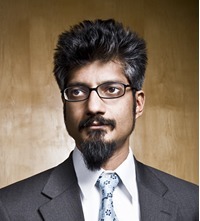 Shahid Buttar is the executive director the Bill of Rights Defense Committee and the People’s Campaign for the Constitution which works to defend civil liberties, constitutional rights, and rule of law principles threatened within the United States by law enforcement and intelligence agencies. He is a constitutional lawyer, grassroots organizer, independent columnist, musician, and poet. He discusses President Obama's signing of two new pieces of legislation permitting warrantless spying and indefinite detention. He also discusses rendition, torture, and the new film "Zero Dark Thirty."
Shahid Buttar is the executive director the Bill of Rights Defense Committee and the People’s Campaign for the Constitution which works to defend civil liberties, constitutional rights, and rule of law principles threatened within the United States by law enforcement and intelligence agencies. He is a constitutional lawyer, grassroots organizer, independent columnist, musician, and poet. He discusses President Obama's signing of two new pieces of legislation permitting warrantless spying and indefinite detention. He also discusses rendition, torture, and the new film "Zero Dark Thirty."
Total run time: 29:00
Host: David Swanson.
Producer: David Swanson.
Music by Duke Ellington.
Download or get embed code from Archive or AudioPort or LetsTryDemocracy.
Syndicated by Pacifica Network.
Please encourage your local radio stations to carry this program every week!
Embed on your own site with this code:
<object autostart="false" data="http://davidswanson.org/sites/davidsw..." height="100px" width="400px"></object>
Past Talk Nation Radio shows are all available free and complete at http://davidswanson.org/talknationradio

